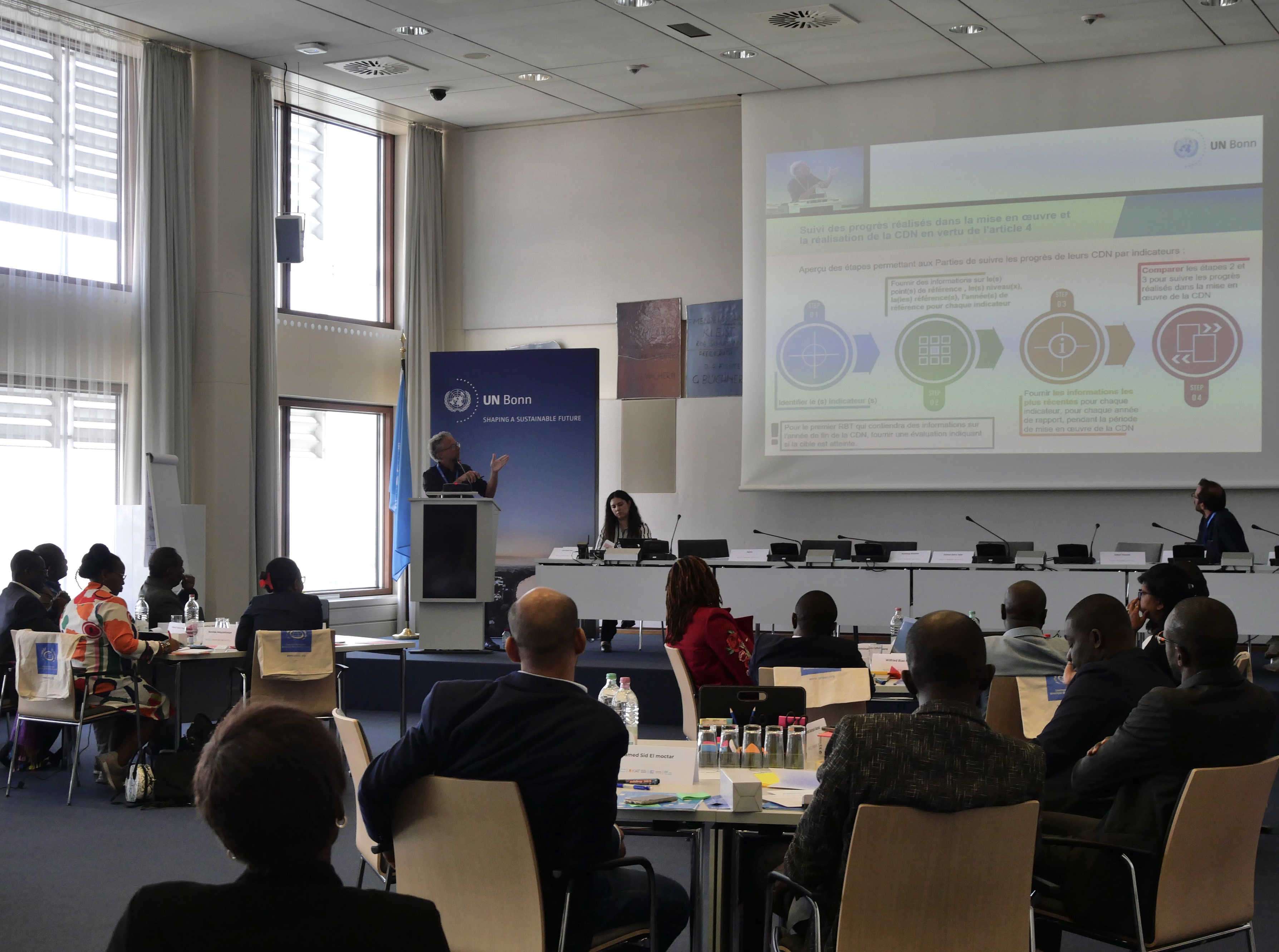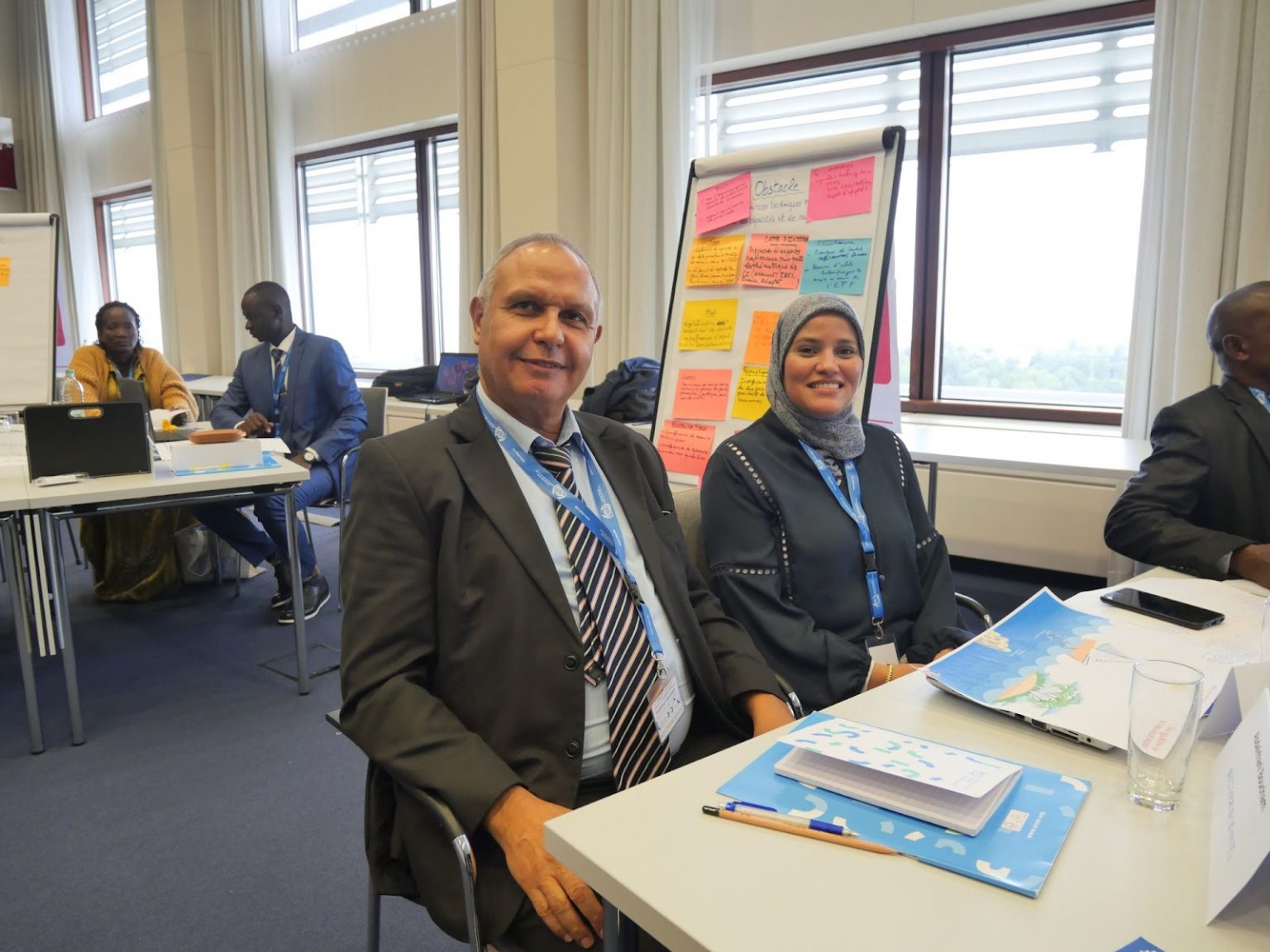
Enhancing Knowledge
A blended online/in-person training course on climate transparency resulted in over 91 per cent of participants stating it had increased their capacity significantly in climate transparency.
From February to September 2023, 80 senior government officials and technical experts from 20 French-speaking developing countries participated in the blended training course on climate transparency and the Enhanced Transparency Framework (ETF).
The course aimed to support developing countries to fulfill their obligation to implement the ETF of the Paris Agreement, and to develop effective mitigation action in line with their national priorities. It was developed as a collaboration between ICAT, the UNFCCC Secretariat, UN System Staff College, the Capacity Building Initiative for Transparency-Global Support Programme, and UNEP Copenhagen Climate Centre. It consisted of an online course with e-learning modules, exercises, and virtual interactive sessions; and an in-person workshop.
The online course began with five core modules, which provided a solid basis for understanding the basics of the ETF and mitigation policy assessment. The core modules covered:
- The need for climate transparency
- Unpacking the Enhanced Transparency Framework
- Assessing the greenhouse gas impacts of mitigation actions
- Assessing sustainable development and transformational impacts
- Implementation and practice
Each week, participants took part in virtual sessions facilitated by subject matter experts.These sessions gave participants an opportunity to receive advice from experts and share experiences with each other.
Following the completion of the core modules, four modules were conducted to address more technical issues related to the ETF. These modules focused on agriculture, transport, sustainable development, and transformational change, guiding participants through the use of ICAT methodologies for assessing the impact of policies and measures in these areas.
The online modules were very well received, with over 80 per cent of participants completing the programme and obtaining certificates. The feedback from participants was overwhelmingly positive, with almost 99 per cent recommending the training and over 91 per cent indicating that it significantly or completely increased their capacity in climate transparency.
Following the online course, almost 30 participants attended the in-person component of the training, a 3-day workshop in Bonn, to put into practice the lessons learned during the online modules. The workshop focused on peer-to-peer sharing of experiences, presentations, and exercises, and covered several transparency-related topics, such as transitioning to the ETF, assessing the impact of climate policies and actions, and tracking climate finance. This was complemented by sessions that focused on stakeholder engagement and improving communication skills.
Participants were very satisfied with the workshop, particularly in terms of the knowledge gained on how to develop a robust national transparency system and the opportunity to exchange ideas with other national experts. The group sessions were the most widely appreciated, according to the responses to the participant evaluation surveys, highlighting the value of the peer-to-peer exchanges.
Overall, participants found the training to be a valuable resource and expressed their interest in using ICAT methodologies and adapting them to their country’s specific needs. The training brought out many of the benefits of transparency beyond reporting and was considered to be a good starting point for developing and implementing a robust national transparency system to support upcoming submissions of biennial transparency reports under the ETF of the Paris Agreement.
